 Yash Adhia is a Senior Applications Support Engineer at TA Instruments supporting the thermal and rheology line of products. Prior to joining TA Instruments, he earned his Master’s in Macromolecular Science and Engineering from the University of Michigan, Ann Arbor. During his graduate studies, he worked on studying and characterizing gels formed through the self-assembly of small molecules and its interaction with polymeric additives using thermal, rheological and optical techniques. He earned his Bachelor’s in Surface Coating Technology from the Institute of Chemical Technology, Mumbai, India where his undergraduate research focused on studying curing kinetics of epoxy resins using DSCs. During the course of his undergraduate and graduate studies, he has had the opportunity to intern at Asian Paints India Ltd, Mumbai, working on formulating and characterizing photo-curable coatings, and at INOS Technologies, Ann Arbor working on negative pressure wound therapy foams.
Yash Adhia is a Senior Applications Support Engineer at TA Instruments supporting the thermal and rheology line of products. Prior to joining TA Instruments, he earned his Master’s in Macromolecular Science and Engineering from the University of Michigan, Ann Arbor. During his graduate studies, he worked on studying and characterizing gels formed through the self-assembly of small molecules and its interaction with polymeric additives using thermal, rheological and optical techniques. He earned his Bachelor’s in Surface Coating Technology from the Institute of Chemical Technology, Mumbai, India where his undergraduate research focused on studying curing kinetics of epoxy resins using DSCs. During the course of his undergraduate and graduate studies, he has had the opportunity to intern at Asian Paints India Ltd, Mumbai, working on formulating and characterizing photo-curable coatings, and at INOS Technologies, Ann Arbor working on negative pressure wound therapy foams.

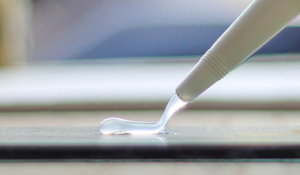

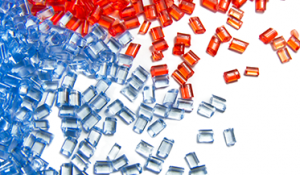



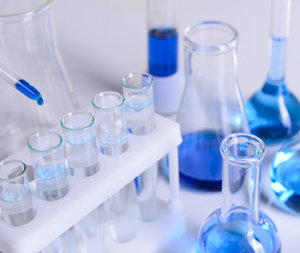
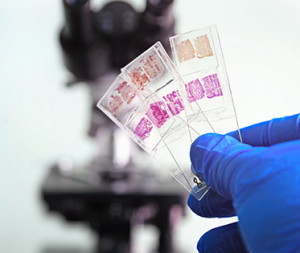
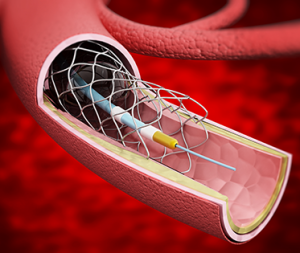
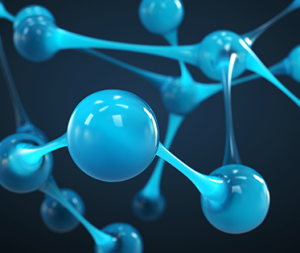
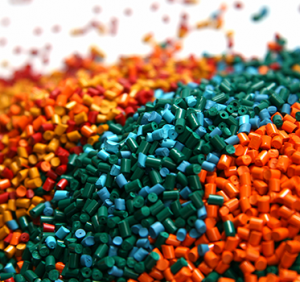
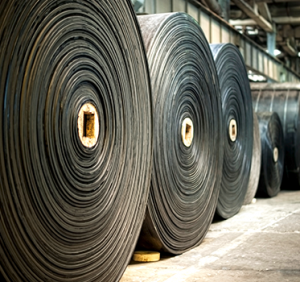

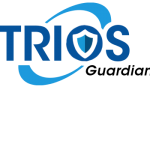


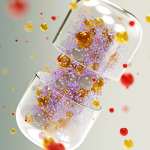
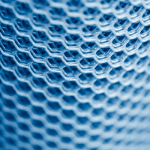
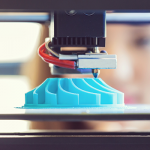
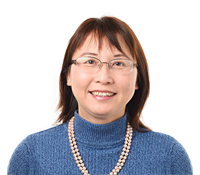 Tianhong (Terri) Chen, Ph.D. is a Senior Applications Support Scientist with TA Instruments currently supporting the Rheology and DMA product lines. She received her PhD degree in Polymer Science from Sun Yat-sen University (SYSU) in China, specializing in polymer synthesis and characterization. She did her post-doc research and later became a research assistant professor at the University of Maryland. During that time, her research was focused on biopolymer modifications and analysis. Dr. Chen joined TA Instruments in 2004. Her key responsibilities at TA Instruments are customer support, consultation, and teaching DMA and rheology training courses. Dr. Chen has more than 50 publications in peer-reviewed journals and two US patents.
Tianhong (Terri) Chen, Ph.D. is a Senior Applications Support Scientist with TA Instruments currently supporting the Rheology and DMA product lines. She received her PhD degree in Polymer Science from Sun Yat-sen University (SYSU) in China, specializing in polymer synthesis and characterization. She did her post-doc research and later became a research assistant professor at the University of Maryland. During that time, her research was focused on biopolymer modifications and analysis. Dr. Chen joined TA Instruments in 2004. Her key responsibilities at TA Instruments are customer support, consultation, and teaching DMA and rheology training courses. Dr. Chen has more than 50 publications in peer-reviewed journals and two US patents. Malin Suurkuusk is the Isothermal Calorimetry Product Manager / Application Specialist at TA Instruments. She holds a Masters of Science Degree in Biochemistry from Stockholm University, and a PhD from the University of Lund where she studied in the lab of Prof. Ingemar Wadsö. She has worked extensively with Differential Scanning Calorimetry and Isothermal Titration Calorimetry, as well as other biophysical methods. Her early work in microcalorimetry instrument development included responsibilities in product management, applications lab management and marketing at Thermometric in Sweden. She is considered the world’s leading expert on the TAM isothermal instruments with numerous microcalorimetry publications. In October of 2014 she was recognized for her contributions to the field of microcalorimetry, and featured as a Biophysicist in Profile by the Biophysical Society.
Malin Suurkuusk is the Isothermal Calorimetry Product Manager / Application Specialist at TA Instruments. She holds a Masters of Science Degree in Biochemistry from Stockholm University, and a PhD from the University of Lund where she studied in the lab of Prof. Ingemar Wadsö. She has worked extensively with Differential Scanning Calorimetry and Isothermal Titration Calorimetry, as well as other biophysical methods. Her early work in microcalorimetry instrument development included responsibilities in product management, applications lab management and marketing at Thermometric in Sweden. She is considered the world’s leading expert on the TAM isothermal instruments with numerous microcalorimetry publications. In October of 2014 she was recognized for her contributions to the field of microcalorimetry, and featured as a Biophysicist in Profile by the Biophysical Society. Jason Saienga is currently the Product Manager for the Thermal Analysis and Thermal Conductivity product lines at TA Instruments. Jason joined TA in 2006 after completing his doctorate program in Materials Science and Engineering at Iowa State University. Jason started out his career at TA in the applications lab teaching the theory and applications lectures, instrument hands-on courses, and providing customer and sales support for the thermal analysis techniques. As Product Manager, Jason and his team work to define and coordinate of the future of thermal analysis and thermal conductivity product lines at TA.
Jason Saienga is currently the Product Manager for the Thermal Analysis and Thermal Conductivity product lines at TA Instruments. Jason joined TA in 2006 after completing his doctorate program in Materials Science and Engineering at Iowa State University. Jason started out his career at TA in the applications lab teaching the theory and applications lectures, instrument hands-on courses, and providing customer and sales support for the thermal analysis techniques. As Product Manager, Jason and his team work to define and coordinate of the future of thermal analysis and thermal conductivity product lines at TA. Justin Wynn is an Application Engineer for Thermophysical Properties at TA Instruments. As an Application Engineer, he provides primary support on the thermophysical product line, which includes thermal conductivity meters, flash diffusivity analyzers and dilatometers. He performs demonstrations and conducts feasibility tests to characterize a bevy of samples with appropriate data analysis, and provides application specific test protocol development support. Prior to joining TA Instruments in 2016, he earned his Bachelor’s degree in Biomedical Engineering from the University of Delaware. While there, he assisted in an independent study that involved comparative study of motion in human subjects. His senior capstone project revolved around the development of safety tools to be used in hospital operating rooms.
Justin Wynn is an Application Engineer for Thermophysical Properties at TA Instruments. As an Application Engineer, he provides primary support on the thermophysical product line, which includes thermal conductivity meters, flash diffusivity analyzers and dilatometers. He performs demonstrations and conducts feasibility tests to characterize a bevy of samples with appropriate data analysis, and provides application specific test protocol development support. Prior to joining TA Instruments in 2016, he earned his Bachelor’s degree in Biomedical Engineering from the University of Delaware. While there, he assisted in an independent study that involved comparative study of motion in human subjects. His senior capstone project revolved around the development of safety tools to be used in hospital operating rooms. Yash Adhia is a Senior Applications Support Engineer at TA Instruments supporting the thermal and rheology line of products. Prior to joining TA Instruments, he earned his Master’s in Macromolecular Science and Engineering from the University of Michigan, Ann Arbor. During his graduate studies, he worked on studying and characterizing gels formed through the self-assembly of small molecules and its interaction with polymeric additives using thermal, rheological and optical techniques. He earned his Bachelor’s in Surface Coating Technology from the Institute of Chemical Technology, Mumbai, India where his undergraduate research focused on studying curing kinetics of epoxy resins using DSCs. During the course of his undergraduate and graduate studies, he has had the opportunity to intern at Asian Paints India Ltd, Mumbai, working on formulating and characterizing photo-curable coatings, and at INOS Technologies, Ann Arbor working on negative pressure wound therapy foams.
Yash Adhia is a Senior Applications Support Engineer at TA Instruments supporting the thermal and rheology line of products. Prior to joining TA Instruments, he earned his Master’s in Macromolecular Science and Engineering from the University of Michigan, Ann Arbor. During his graduate studies, he worked on studying and characterizing gels formed through the self-assembly of small molecules and its interaction with polymeric additives using thermal, rheological and optical techniques. He earned his Bachelor’s in Surface Coating Technology from the Institute of Chemical Technology, Mumbai, India where his undergraduate research focused on studying curing kinetics of epoxy resins using DSCs. During the course of his undergraduate and graduate studies, he has had the opportunity to intern at Asian Paints India Ltd, Mumbai, working on formulating and characterizing photo-curable coatings, and at INOS Technologies, Ann Arbor working on negative pressure wound therapy foams.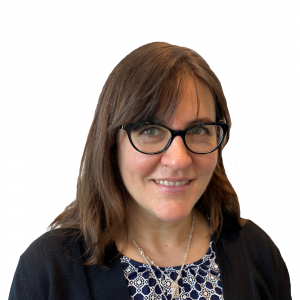 Dr. Cabovska holds a research degree in analytical chemistry and has over 10 years of experience in extractables and migration application. Dr. Cabovska is currently a senior business development manager at Waters Corporation, located in Milford, MA – USA where she actively collaborates with customers on providing comprehensive materials characterization solutions across extractables and migration testing applications. Before joining Waters, Dr. Cabovska focused her work on Bioanalytical method development and validations for therapeutic drug monitoring and extractable and leachable studies in packaging.
Dr. Cabovska holds a research degree in analytical chemistry and has over 10 years of experience in extractables and migration application. Dr. Cabovska is currently a senior business development manager at Waters Corporation, located in Milford, MA – USA where she actively collaborates with customers on providing comprehensive materials characterization solutions across extractables and migration testing applications. Before joining Waters, Dr. Cabovska focused her work on Bioanalytical method development and validations for therapeutic drug monitoring and extractable and leachable studies in packaging.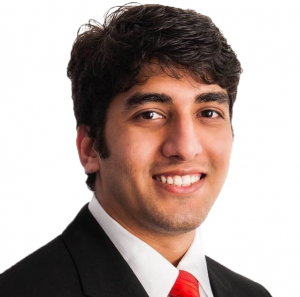 Muhammad Haris is Application Engineer for TA Instruments ElectroForce based near Frankfurt, Germany. He specialized in ElectroForce mechanical test instruments and engages with customers on their testing needs related to the application of ElectroForce products and puts forward broad-ranging solutions. He holds a master’s degree in Advanced Materials & Processes. Prior to joining TA Instruments, Haris has worked with Procter & Gamble for about 2 years on analytical development and characterization of electric shavers’ blades.
Muhammad Haris is Application Engineer for TA Instruments ElectroForce based near Frankfurt, Germany. He specialized in ElectroForce mechanical test instruments and engages with customers on their testing needs related to the application of ElectroForce products and puts forward broad-ranging solutions. He holds a master’s degree in Advanced Materials & Processes. Prior to joining TA Instruments, Haris has worked with Procter & Gamble for about 2 years on analytical development and characterization of electric shavers’ blades. Sadegh Behdad is an Applications Engineer at TA Instruments, supporting ElectroForce product line. Sadegh has a PhD in Materials Science and Engineering from Florida International University. He earned his BSc and Masters in Polymer Engineering from Amirkabir University of Technology. Prior to joining TA Instruments, Sadegh worked as a Sr. Materials Scientist at Magic Leap. At Magic Leap, he supported material design and development teams on selection of material candidates and testing various materials and components for wearable virtual retinal display applications.
Sadegh Behdad is an Applications Engineer at TA Instruments, supporting ElectroForce product line. Sadegh has a PhD in Materials Science and Engineering from Florida International University. He earned his BSc and Masters in Polymer Engineering from Amirkabir University of Technology. Prior to joining TA Instruments, Sadegh worked as a Sr. Materials Scientist at Magic Leap. At Magic Leap, he supported material design and development teams on selection of material candidates and testing various materials and components for wearable virtual retinal display applications. Greg Kamykowski Ph.D. is a Senior Applications Scientist for rheology for TA Instruments US West region. He has a BS in chemistry from Loyola University of Chicago and a PhD in physical chemistry from University of Wisconsin – Madison, where he studied under well-known rheologist, Professor John Ferry. He has published several articles, presented at various conferences and meetings, and is involved with the Society of Plastics Engineers, the Society of Rheology, and ASTM.
Greg Kamykowski Ph.D. is a Senior Applications Scientist for rheology for TA Instruments US West region. He has a BS in chemistry from Loyola University of Chicago and a PhD in physical chemistry from University of Wisconsin – Madison, where he studied under well-known rheologist, Professor John Ferry. He has published several articles, presented at various conferences and meetings, and is involved with the Society of Plastics Engineers, the Society of Rheology, and ASTM.
